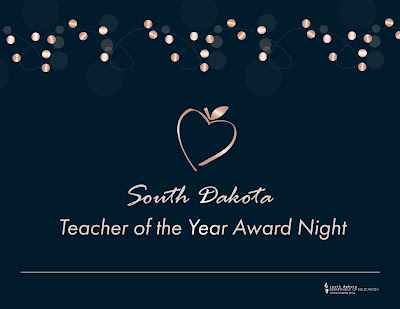The Department of Education is facilitating a series of
webinars during the 2020-21 school year for South Dakota's K-12 social studies teachers. Some
webinars feature national social studies education experts. CEUs are available. Collaborative chats are also offered to
continue the conversation and support learning.
Questions? Contact Melinda Johnson with the South Dakota Department of Education.
Find recordings and other information from previous webinars in this Social Studies Google Folder.
Schedule and registration links:
Why does intellectual charity matter? If you’ve ever been part of a discussion where a point of disagreement turns into a wave of assumptions, faulty evidence, and emotional appeals, you’ve experienced the frustration of arguing without an honest exchange of ideas. This type of miscommunication happens everywhere - social media, classrooms, workspaces, and kitchens. The strain of talking past each other, learning nothing new, and feeling misunderstood often ends the discussion without making any progress.
Join Harvard Fellow Nate Otey to learn a simple, practical set of tools that you can use to improve your students' charity skills so they can discuss current issues with precision and care.
Feb. 2, 2021, 3:30-5:00 p.m. CT: Teaching the Great War with Elementary Students, featuring the National WWI Museum
Think World War I is only a topic for middle and high school students?
Think again! Join a National WWI Museum and Memorial educator in this exciting
webinar to learn effective teaching techniques for use with elementary school
students as they are introduced to World War I. Learn about engaging classroom
activities, lessons about alliances, trench warfare, and propaganda and ideas
for more in-depth student projects that will develop students’ historical
research skills. In addition, we’ll discuss recommended K-5 reading to enrich
your lessons. Special emphasis will be placed on understanding WWI and its
continued impact and relationship to global situations, such as the current
COVID-19 pandemic.
These lessons will address the following South Dakota social
studies content standards:
K-12.H.1: Students will analyze how major events are
chronologically connected and evaluate their impact on one another.
K-12.H.4: Students will identify and evaluate the
causes and effects of past, current, and potential events, issues, and
problems.
K-12.H.5: Students will develop historical research skills.
Feb. 4, 2021, 3:30-5:00 p.m. CT: Making Connections with World War I for Middle and High School Students, featuring the National WWI Museum
Need some assistance to help your students recognize the critical
importance of World War I history and its relevance to contemporary life,
especially with the current pandemic in mind? In this webinar led by a National
WWI Museum and Memorial educator, the focus will be on the continued impact
made by the Great War on a global scale and how it shaped the 20th and 21st
centuries. Webinar attendees will spend time beyond the western front,
examining participants from all inhabited continents, how and why they
contributed to the war effort, and effects felt from war outcomes.
Content provided will be useful for teachers as they address
the following South Dakota social studies content standards:
K-12.H.1: Students will analyze how major events are
chronologically connected and evaluate their impact on one another.
K-12.H.4: Students will identify and evaluate the
causes and effects of past, current, and potential events, issues, and
problems.
9-12.H.4.1: Identify and distinguish between
long-term causes and triggering events of WWI
9-12.H.4.7: Evaluate the causes and effects of the
First World War on the United States
9-12.H.5.1: Determine the kinds of sources that will be
helpful in answering compelling and supporting questions, taking into
consideration multiple points of view represented in the sources, the types of
sources available, and the potential uses of sources.
Register














